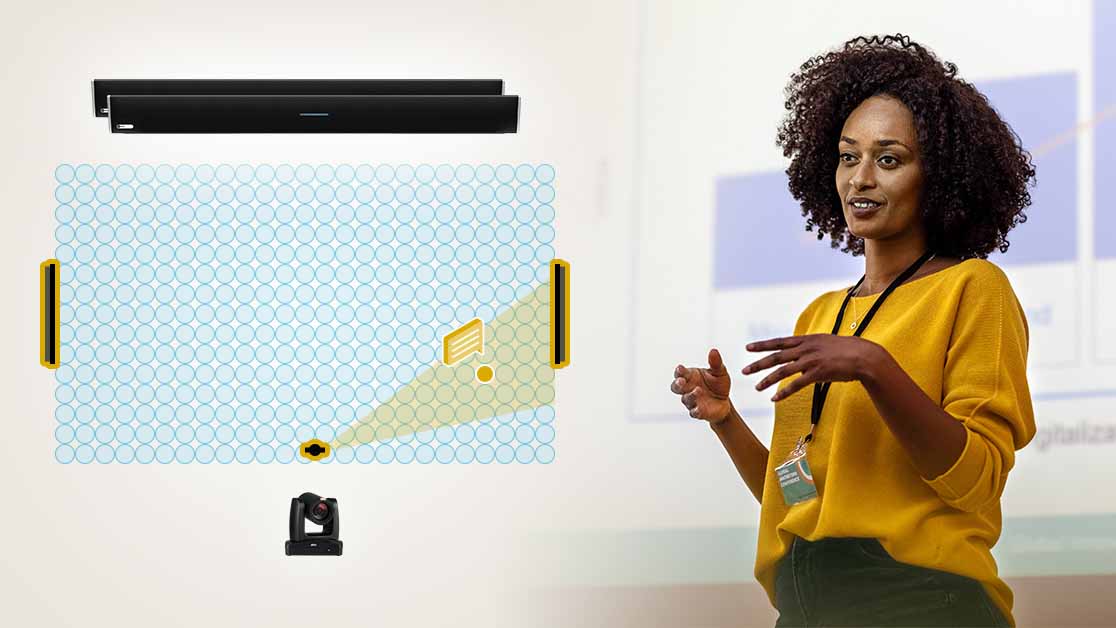Nureva now enables camera tracking with accurate sound location data for third-party camera integrations. Enabled by Nureva’s patented Microphone Mist technology, which fills a room with thousands of virtual microphones, the new sound location device API streams data that identifies where people are talking within a room to steer and switch cameras so that remote participants can more easily follow conversations and see who is speaking. This is ideal for larger rooms that may have a greater number of participants, such as a higher education classroom or a large meeting room or boardroom.
Unlike typical microphone systems that depend on mapping areas to camera presets and provide only sound-source directional data or target unwanted sound sources such as HVAC fans, a wall speaker and even sound reflections from a window, Nureva uses virtual microphones as pickup points to accurately locate sound sources. Microphone Mist technology’s advanced processing power filters out undesirable sounds that make it difficult for remote participants to follow the presenter. Using Nureva’s API, camera companies have easy access to accurate sound direction, location and level from the Nureva audio system being used. Sound locations are reported several times per second to enable automatic camera adjustments based on the location of the active speaker or the need to switch focus between multiple speakers.
[UNC School of Journalism Adopts Nureva Audioconferencing Systems]
Available through Nureva Developer Toolkit, the sound location device API was created as part of a program to work with leading camera companies on integrating their PTZ cameras with Nureva audio systems to offer customers a better audio and video experience. Integrations are currently underway with AVer and Lumens, among other camera companies. Earlier this year, cloud-based monitoring of any USB-connected third-party camera was added to Nureva Console, making it easy for IT staff to remotely monitor cameras and ensure they are functioning properly in meeting rooms and classrooms.
“The use of Microphone Mist technology to enable camera tracking is a breakthrough that opens up many exciting possibilities for the capture and use of sound location data,” said Nancy Knowlton, Nureva’s CEO. “We’re excited to work with leading camera manufacturers to enable this functionality and deliver the kind of integrated audio and video experience that customers are asking for.”
[AV Network's top stories, product news, and expert insights]
Microphone Mist technology vs. beamforming
Many traditional audio systems use beamforming microphone technology, which picks up all sounds that occur within directional beams emanating from the microphone array. This directional approach limits the degree to which precise sound locations can be identified and creates a challenge in distinguishing desirable (a person talking) and undesirable (paper rustling) sounds within a beam. These issues limit the accuracy with which sound location data can be used for camera tracking. Microphone Mist technology avoids these issues by filling a space with thousands of pickup points that act as individual microphones. This creates the opportunity to pinpoint sound locations more accurately while distinguishing between desirable and undesirable sounds more precisely.
